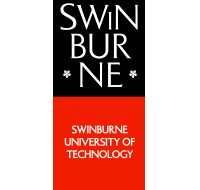Telecommunication Engineering courses
Swinburne University of Technology

- Australia
- World Rank : 401
- Visit Website

The Bachelor of Engineering (Honours) is designed to equip students with technical expertise and management skills in an engineering field of their choice.
Complete core units in your first year to assist in selecting a major. Explore options to undertake a study tour to Malaysia, Turkey or India to get hands-on practical experience and work with local communities.
Obtain theoretical and practical knowledge by participating in workshops and industry projects to prepare for roles in your chosen field across a range of industries. Apply your learning in a professionally focused, multidisciplinary project during your final year of study. Undertake at least 12 weeks of relevant professional experience.
Course learning outcomes
Students who successfully complete this course will be able to:
Career opportunities
Graduates may find employment in a number of different engineering areas depending on their chosen major and specialisation. These areas include Civil Engineering, Construction Engineering, Architectural Engineering, Electrical and Electronic Engineering, Telecommunication Engineering, Software Engineering, Mechanical Engineering, Biomedical Engineering, Robotics and Mechantronics Engineering, and Product Design Engineering.
Civil graduates may find employment as a civil engineer, civil design engineer, structural engineer or environmental engineer.
Construction graduates may find employment as a construction engineer or construction manager.
Architectural graduates may find employment as a design engineer, structural systems engineer, architectural engineer or project engineer.
Electrical and Electronic graduates may find employment as an electrical engineer, electronics engineer, communications, engineer, power engineer or design engineer.
Telecommunication graduates may find employment as a network engineer, telecommunication network designer, telecommunication network developer, network architect or telecommunications engineer.
Software graduates may find employment as a software engineer, software systems developer, software modeller or project and technology manager.
Mechanical graduates may find employment as a mechanical engineer, mechanical project engineer, design engineer, project and technology manager or engineering project manager.
Biomedical graduates may find employment as a biomedical engineer, clinical engineer, medical device designer or medical electronics engineer.
Robotics and Mechatronics graduates may find employment as a robotics and mechatronics engineer, control systems engineer, factory automation adviser or robotics developer.
Product Design Engineering graduates may find employment as an industrial designer, industrial engineer, product designer, product design engineer, entrepreneur or design consultant.
Class 12th: 70%
English language requirements
Each Swinburne course has a minimum English language requirement for entry.
Swinburne English Language Centre - EAP 5 advanced level with overall 65% & all skills 65% or above
IELTS (Academic Module) - Overall 6.0 No individual band below 6.0
PTE Academic - 75 (Reading no less than 18, Writing no less than 20)
PTE Academic - 50 (no communicative skill less than 50)
| University Type | Public |
| Campus Setting | Urban |
| Establishment Year | 1908 |
| Student Ratio (Female to Male) | 38:62 |
| Graduate Employability Rate | 84.8% |
| No. of Courses | 261 |
| No. of International Students | 26% |
| Cost of Attendance | AUD 20,000 – AUD 50,000 (annually) |
| Applications Accepted | Agent/Online |
| Work-Study | Available |
| Intake Type | Semester wise |
| Mode of Program | Full time; part time and online |
| Department Name | Total Fee (UG) |
|---|---|
| Arts and Humanities | AUD 19,698 – AUD 24,623 |
| Aviation | AUD 32,874 |
| Business | AUD 32,874 – AUD 41,093 |
| Design | AUD 19,698 – AUD 28,077 |
| Engineering | AUD 39,070 – AUD 49,845 |
| Health Sciences | AUD 28,077 – AUD 35,096 |
| Sciences and IT | AUD 28,077 – AUD 37,436 |
| Law | AUD 43,832 |
| Media and Communication | AUD 19,698 – AUD 24,623 |
| Nursing | AUD 26,400 |
| Tuition Fees in Australia (1st Year Average) | BE/Btech: AUD 29109 | MBA: AUD 35139 | MS: AUD 36803 | BBA: AUD 28693 | MEng: AUD 39298 | BSc: AUD 34307 | MIM: AUD 39298 | MFin: AUD 35347 | MArch: AUD 37218 | BHM: AUD 28693 | MIS: AUD 35347 | MEM: AUD 43040 |
| Average Accomodation & Food Costs in Australia | AUD 1680 Per Month Approx |
| Entrance Exams in Australia | TOEFL: 77 | IELTS: 6.5 | PTE: 57 | GRE: 300 | GMAT: 600 |
| Work and Study in Australia | Permitted for 20 hours/week with a valid study permit. |
| Post Study Work Permit in Australia | 2 Year after graduation depending on the course. |
| Cost of Student Visa in Australia | AUD 620 |
| Student Visa in Australia | The subclasses for the visa were reduced to two from the eight for convenience. The two visa subclasses are Subclass 500 (for students) and Subclass 590 (For Student Guardian). |
| Intakes in Australia | There are Two Main Intakes in Australia: February and July. |
| Top Job Sectors in Australia | Health Care and Social Assiastance, Construction, Education, Manufacturing, Public Administration and Safety, Transport & Logistics, etc. |
| Economy in Australia | 1.7% (2019e) 2.3% (2020e), 10th Largest in the World by Nominal |
Tuition & fees :
$ 35,720
Hostel & Meals :
$ 13,780
Total
$ 49,500